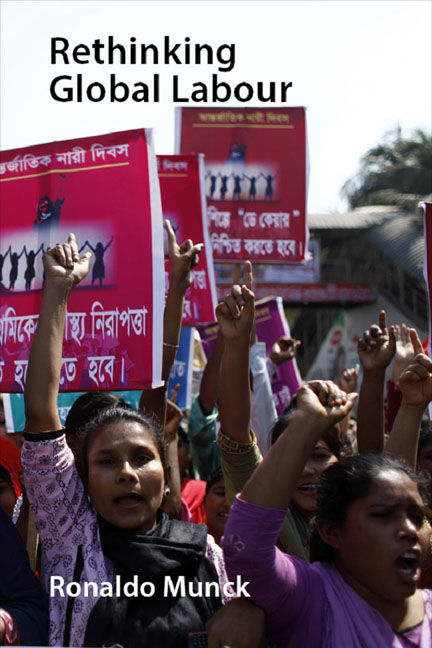6 - A Global Precariat
Published online by Cambridge University Press: 09 August 2023
Summary
The massive expansion and acceleration of capital accumulation and the almost universal real subsumption of labour in the one-time non-capitalist and radical nationalist areas of the globe are generating a new global working class, coming under the sway of capital on a global scale for the first time and subject to similar pressures and reacting in similar ways. In the North the precarious and insecure nature of most work, especially in the wake of the 2007–9 global capitalist recession, has increased dramatically. Some have suggested that a new social subject has emerged: a “precariat”, which now constitutes a “dangerous class” akin to the urban poor in Victorian Britain (Standing 2011). For the millions of workers and urban poor in the global South, precariousness has always been a characteristic of work. What we see now, however, is the emergence of a truly global precariat with different forms and degrees of exploitation but sharing features and, above all, a common interest in the democratization of the global economy and the establishment of social control over the rule of blind market forces.
In recent years there has been an intense debate around the concept of the “precariat”. We saw, for example, The Economist, on the 200th anniversary of Marx’s birth, telling its readership among the international financial elite:
Yet once again Marx’s argument is gaining urgency. The gig economy is assembling a reserve force of atomised labourers who wait to be summoned, via electronic foremen, to deliver people’s food, clean their houses or act as their chauffeurs … Marx’s proletariat is being reborn as the precariat.
(The Economist 2018)Undoubtedly, this has been beneficial in focusing attention on the workers of the world and how their condition has been impacted by globalization. The term has been questioned by many experienced researchers and analysts (e.g. Breman 2013; Palmer 2013) and has even generated a special issue of the Global Labour Journal (May 2016, entitled “Politics of Precarity – Critical Engagements with Guy Standing”).
- Type
- Chapter
- Information
- Rethinking Global LabourAfter Neoliberalism, pp. 139 - 156Publisher: Agenda PublishingPrint publication year: 2018



